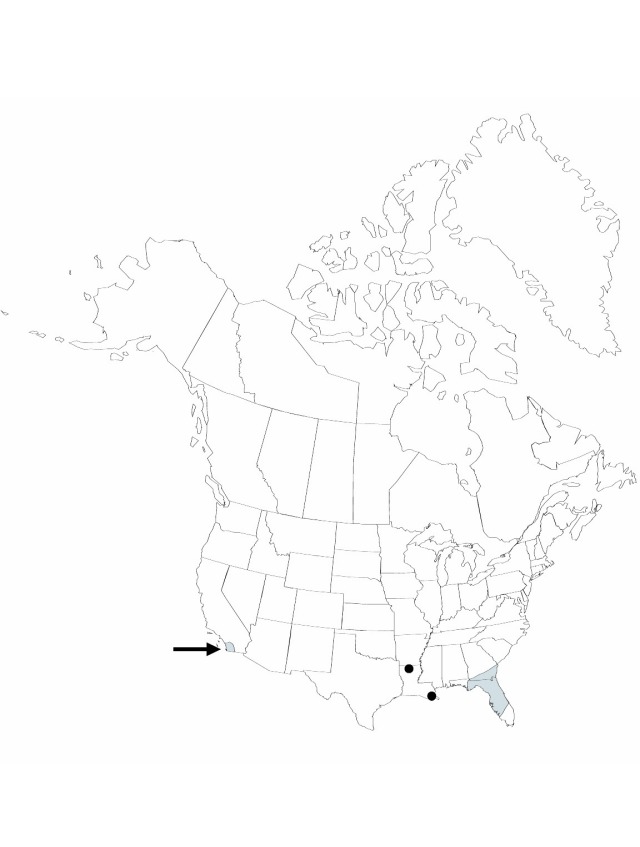Difference between revisions of "Commelina benghalensis"
Sp. Pl. 1: 41. 1753.
imported>Volume Importer |
imported>Volume Importer |
||
| Line 53: | Line 53: | ||
|publication year=1753 | |publication year=1753 | ||
|special status=Weedy;Introduced | |special status=Weedy;Introduced | ||
| − | |source xml=https:// | + | |source xml=https://bitbucket.org/aafc-mbb/fna-data-curation/src/2e0870ddd59836b60bcf96646a41e87ea5a5943a/coarse_grained_fna_xml/V22/V22_292.xml |
|genus=Commelina | |genus=Commelina | ||
|species=Commelina benghalensis | |species=Commelina benghalensis | ||
Latest revision as of 20:30, 5 November 2020
Herbs, annual. Roots thin, rhizomes short, subterranean, bearing cleistogamous flowers produced from base of plant. Stems ascending to decumbent or occasionally scrambling. Leaves: leaf sheaths, not auriculate, often with red hairs at summit; blade ovate to lanceolate-elliptic, (1–)2–9(–11) × 1–3(–4.5) cm, apex rounded, obtuse or acute, pubescent. Inflorescences: distal cyme often exserted and 1-flowered, sometimes vestigial; spathes often clustered, subsessile (peduncles 1–3.5 mm), funnelform, 0.5–1.5(–2) cm, margins connate basally, pubescent. Flowers: chasmogamous flowers bisexual and staminate, subterranean cleistogamous flowers bisexual; petals of staminate flowers all blue (rarely lilac), proximal smaller; lateral stamen filaments not winged; staminodes 2–3; antherodes yellow, cruciform; pollen white; medial stamen pollen yellow. Capsules 3-locular, 2-valved, 4–6 mm. Seeds 5, brown or blackish, seeds of adaxial locule 1.7–2.5 mm, shallowly reticulate, farinose. 2n = 22.
Phenology: Flowering spring–fall.
Habitat: Citrus plantations, fields, yards, and other cultivated and disturbed sites
Distribution

Introduced; Calif., Fla., Ga., La., neotropics, native, paleotropics.
Discussion
Commelina benghalensis was first recognized and collected in California in 1980. The California plants are approximately hexaploid and represent a separate and much later introduction than the southeastern plants. The species is federally listed as an Obnoxious Weed.
Selected References
None.